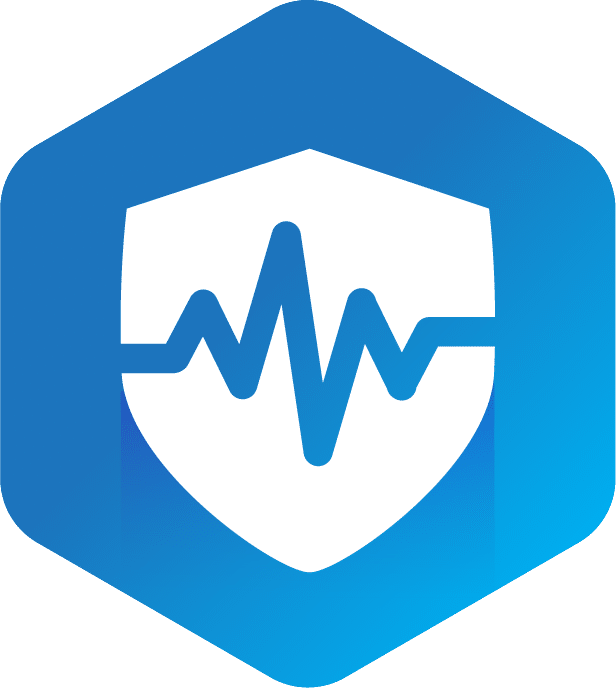HIPAA guidelines dictate precise conditions for the use and disclosure of Protected Health Information (PHI). Authorized uses include national security, public health activities, and imminent danger situations, all while upholding strict privacy standards. Legal requirements mandate safeguards such as risk assessments and access controls. Psychotherapy notes necessitate patient consent, with limited exceptions for treatment and training. Disclosures for law enforcement and public interest activities follow stringent protocols. Covered entities must balance patient confidentiality with legal and public health obligations. For detailed scenarios and compliance measures, understanding these complex regulations is critical.
The Privacy Rule under HIPAA allows the use and disclosure of protected health information (PHI) without individual authorization for 12 national priority purposes. Among these purposes, critical areas include national security and emergency response.
Covered entities are permitted to disclose PHI to authorized federal officials for the conduct of lawful intelligence, counter-intelligence, and other national security activities. Additionally, in emergency response scenarios, PHI can be shared with public health authorities to manage and mitigate public health risks, such as controlling disease outbreaks or addressing threats to public safety.
These provisions guarantee that while PHI is safeguarded, it can also be readily utilized for significant national and community interests where rapid response is essential.
Covered entities must adhere to specific legal requirements under HIPAA to guarantee the protection and confidentiality of protected health information (PHI). Compliance standards mandate that entities implement administrative, physical, and technical safeguards to mitigate risks and maintain data integrity.
These regulations encompass the necessity to conduct risk assessments, enforce access controls, and establish breach notification procedures. The legal implications of non-compliance are significant, including potential fines and legal action.
Entities are required to provide training to staff, maintain thorough documentation, and regularly review policies to uphold adherence to HIPAA standards. Understanding and implementing these legal requirements is essential for safeguarding PHI and maintaining public trust in the healthcare system.
Permitting the disclosure of protected health information (PHI) to public health authorities, HIPAA facilitates essential activities to prevent and control disease, injury, or disability. Such disclosures are crucial for disease prevention and health safety, enabling authorities to monitor, investigate, and respond to public health issues effectively.
Under HIPAA, covered entities can share PHI without individual authorization for public health activities, ensuring timely interventions and data collection. These activities include reporting communicable diseases, tracking adverse events related to drugs or devices, and conducting public health surveillance.
All disclosures must comply with regulations to protect the confidentiality and integrity of PHI, maintaining a balance between public health needs and individual privacy rights.
In situations of imminent danger, HIPAA permits the disclosure of protected health information (PHI) without individual authorization to prevent or lessen a serious threat to health and safety. This pivotal regulatory allowance is essential for facilitating emergency response and crisis intervention efforts.
Covered entities, such as healthcare providers, are authorized to share PHI with law enforcement, family members, or other relevant parties when a serious threat is identified. The aim is to enable swift action to mitigate risks and protect individuals and the public.
However, disclosures must be limited to the minimum necessary information to address the imminent danger, ensuring compliance with HIPAA’s overarching privacy protections while effectively managing emergency situations.
Psychotherapy notes, distinct from general medical records, are meticulously documented by mental health professionals during counseling sessions and are subject to stringent disclosure regulations under HIPAA.
These notes, which detail the therapy progress, exclude medication information, treatment specifics, and diagnostic summaries.
The disclosure of psychotherapy notes generally requires explicit patient consent, ensuring that sensitive information remains protected.
However, there are limited circumstances under which these notes can be disclosed without authorization, such as compliance with Department of Health and Human Services (DHHS) requirements or to avert serious health threats.
Covered entities must rigorously adhere to these regulations to maintain the confidentiality and integrity of psychotherapy notes, thereby protecting patient privacy and fostering trust in therapeutic relationships.
While the disclosure of psychotherapy notes demands stringent patient consent, covered entities are afforded the latitude to utilize these notes for treatment purposes and professional training without prior authorization.
This regulatory flexibility enables healthcare providers to use psychotherapy notes in research studies and for educational purposes, enhancing the overall quality of care. Additionally, these notes can be leveraged for quality improvement initiatives and staff training, ensuring that healthcare professionals are well-equipped to deliver effective treatment.
Mental health providers are permitted under HIPAA to share patient information with family members, caregivers, or other individuals involved in the patient’s care based on their professional judgment. However, such sharing must adhere to strict privacy considerations and ethical boundaries to safeguard patient confidentiality.
HIPAA stipulates that disclosures should be limited to the minimum necessary information relevant to the care provided. Providers must carefully evaluate each situation to balance the need for information sharing with the imperative to protect patient privacy. Ensuring that only pertinent details are disclosed helps maintain trust while enabling effective care coordination.
These guidelines underscore HIPAA’s commitment to both patient safety and privacy protection.
Frequently, mental health providers must rely on their professional judgment to determine the appropriateness of sharing patient information under HIPAA guidelines. Ethical considerations and patient confidentiality are paramount in these decisions.
Providers must carefully balance privacy boundaries with the needs of therapeutic relationships. HIPAA permits disclosures without patient authorization in certain instances, such as when sharing information with personal representatives or individuals involved in a patient’s care.
These determinations must be made with the utmost attention to the ethical implications and the potential impact on the therapeutic relationship. Professional judgment is also important when evaluating risks to prevent harm, ensuring that any disclosure aligns with HIPAA’s stringent privacy protections and the overarching goal of patient safety.
In emergency situations, HIPAA provisions allow covered entities to disclose protected health information (PHI) to disaster relief agencies to facilitate communication with family members or caregivers regarding a patient’s condition or location. These emergency communications are critical for effective disaster response, guaranteeing timely patient notifications and family updates.
Under these guidelines, disclosures are permissible to aid disaster relief efforts without violating privacy regulations. Covered entities must make certain that only the necessary PHI is shared to achieve the intended purpose. It is essential to uphold the balance between aiding disaster response and protecting individual privacy.
The regulatory framework safeguards appropriate use of PHI during crises, emphasizing the importance of maintaining confidentiality while enabling essential communication.
Under the HIPAA Privacy Rule, covered entities are permitted to disclose protected health information (PHI) to law enforcement officials under specific conditions set in place to guarantee compliance with legal requirements. Such disclosures must adhere to stringent law enforcement protocols, ensuring data privacy is maintained.
Permissible scenarios include responding to court orders, warrants, or subpoenas, and providing information to identify or locate a suspect, fugitive, or missing person. PHI disclosures are also allowed in cases of reporting a crime on the premises of the covered entity.
These actions must be narrowly tailored, disclosing only the minimum necessary information to fulfill the legal request, thereby balancing law enforcement needs with stringent data privacy protections.
Beyond law enforcement requests, the HIPAA Privacy Rule also permits the disclosure of protected health information (PHI) for public interest activities aimed at safeguarding public health and safety.
These activities encompass a range of essential functions:
These provisions ensure that public health initiatives can effectively address critical health concerns while upholding PHI protection.
The labyrinth of HIPAA regulations meticulously balances patient privacy with the imperative needs of health and safety. By delineating authorized uses and disclosures of PHI, the guidelines navigate the complexities of compliance, ensuring that sensitive information is both protected and utilized appropriately.
As each provision unfolds, the tension between confidentiality and the necessity of information sharing becomes palpable, underscoring the delicate equilibrium that HIPAA aims to maintain in the ever-evolving landscape of healthcare.

